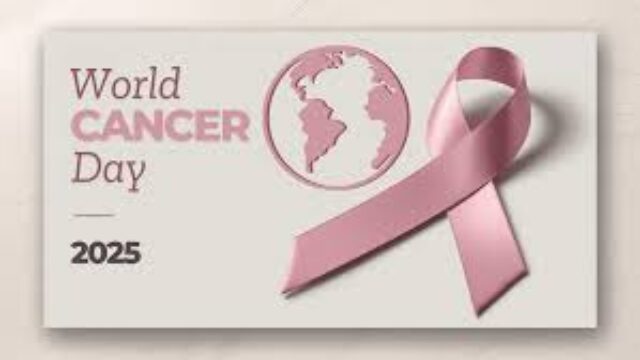
By Editor
In commemoration of World Cancer Day 2025, a cancer organization, Project PINK BLUE – Health & Psychological Trust Centre, in collaboration with the Global Colorectal Cancer Association, premiered a new documentary film titled “Blood in My Stool.”
“Blood in My Stool” is a groundbreaking documentary film that confronts the urgent issue of colorectal cancer in Nigeria.
Through powerful survivor stories and expert insights, the film highlighted the often-overlooked realities of this disease, emphasizing that many lives could be saved with early detection.
Speaking at the event, the Executive Director of Project PINK BLUE, Runcie Chidebe, said that colorectal cancer is the fourth leading cause of cancer deaths in Nigeria.
According to him, out of the 8,114 Nigerians diagnosed with colorectal cancer, 5,912 died of the disease in 2022.
“Simply put, over 70% of Nigerians diagnosed with colorectal cancer died in 2022. These deaths are not just numbers and figures; these deaths are patients, parents, mothers, fathers, brothers, sisters, and relations who are breadwinners to their families. These are preventable deaths if these cancers are diagnosed early and treated early.
“Painfully, most of the cancer awareness and advocacy has been focused on breast, cervical, and prostate cancers; colorectal cancer is highly neglected, and Nigerians diagnosed with colorectal cancer are rarely seen or heard of.
“Every day, we see the faces of breast cancer survivors, but we rarely see or hear the stories of those who have survived colorectal cancer. For this reason, Project PINK BLUE and the Global Colon Cancer Association have partnered and produced this documentary on
‘Blood in My Stool’,” said Chidebe.
The premiere of the film was officially opened by the Minister of Youth Development, Ayodele Olawande, who urged Nigerians to desist from smoking and not to ignore any blood in their stools.
“To the young people in this room, I want you to be health champions in your communities. I encourage you to desist from tobacco smoking. Multiple data from around the world have shown that smoking is responsible for 16 different types of cancer.
“Do not ignore any blood in your stool. Blood in stool and rectal bleeding have been found to be symptoms of colon cancer. Eat organic, limit alcohol, and maintain a healthy lifestyle. Being overweight can increase your risk of colon cancer.
“As we watch ‘Blood in My Stool’ today, let it not just be another film screening. Let it be a wake-up call that any blood in your stool should not be ignored. Let it inspire action to reduce the burden of colon cancer in Nigeria. Let it drive us to do more for youth health and cancer care in Nigeria,” he added.
In his comment, Candace Henley, Director of Equity and Partnerships, Global Colon Cancer Association, USA, said that the documentary serves as a vital call to action to raise awareness and provoke urgent conversations about the need for equitable and accessible cancer care. “Blood in My Stool” uses the voices of colorectal cancer patients to ensure they are seen, heard, and supported, transforming the narrative around this critical health issue.
Mrs. Yemisi Daodu, a colorectal cancer survivor who shared her story in the documentary, said, “In my case, I started seeing blood in my stool, and immediately I visited the hospital, and it was diagnosed that I have colon cancer. The diagnosis was early, and I started treatment instantly. Since then, I am doing great. This explains the benefit of early detection and treatment.
“You see, I did the treatment abroad. In a country where over 40% of Nigerians are poor, how many patients can travel abroad for cancer treatment? For this reason, I have always been compelled to share my story with Nigerians and get people to understand the health inequities so that patients can be placed at the centre of their care
